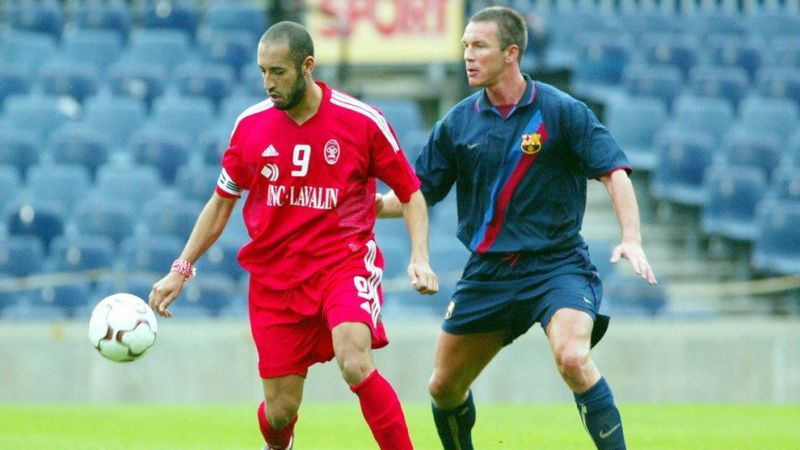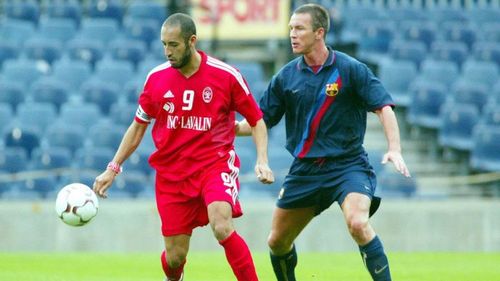
The time Colonel Gaddafi's son played in the Serie A

Al-Saadi Gaddafi was no ordinary player. Whilst the Libyan forward enjoyed the usual luxuries of a top-class footballer - the cars, the money and the women - there was a darker side to his character just below the surface.
As the son of his country's all-powerful leader, football-mad Al-Saadi could pretty much do as he liked.
Beginning his career with clubs in the Libyan capital city of Tripoli, he used his influence to arrange matches to go in his favour, and tolerated no dissent from the fans. After supporters of opposition club Al-Ahly taunted him, he arranged for their stadium and clubhouse to be demolished.
By all accounts, Gaddafi's football ability didn't add up to much, with one newspaper report stating, "even at twice his current speed, he would still be twice as slow as slow itself".
But that didn't stop Al-Saadi from dreaming of bigger things. After paying to play in a friendly against Barcelona at Camp Nou, he was determined to strut his stuff competitively in Europe.
After a move to Maltese side Birkirkara fell through in 2000, Al-Saadi finally made his dream a reality three years later when he signed for Italian Serie A club Perugia. Gaddafi was clearly not good enough to play in Italy's top flight, but Perugia's chairman Luciano Gaucci had links to Italian politicians who would benefit greatly from the strengthening of ties with Libya.
After much fanfare, Al-Saadi only made a single appearance for Perugia, briefly taking to the pitch as a substitute before failing a drugs test. It wasn't the end of the line though.
Soon after, he joined fellow Serie A club Udinese, again making a single appearance as a substitute. A brief spell at Sampdoria was to follow, but Gaddafi departed Italy having played in only two official matches.
After his football career had come to an end, Al-Saadi was never far away from controversy. He spent time exiled in Niger and was said to have ordered Libya's military to shoot unarmed protesters during the country's civil war, and later faced trial for allegedly ordering the murder of a football coach.